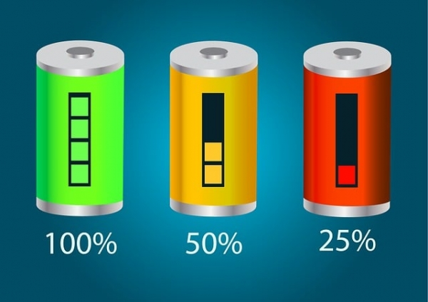Q1 secondary battery outlook 'clear' despite sluggish manufacturing…Related startups are accelerating business expansion and investment attraction (24.01.16)
페이지 정보

본문

[The Stock = Reporter Kim Dong-jin] Despite the sluggish domestic manufacturing industry, the secondary battery industry is expected to grow again this year.
According to the Korea Institute for Industrial Economics (BSI) report on the 14th, only the secondary battery (103), display (103), chemical (100), bio-health (100) industries among domestic manufacturing industries recorded a BSI index of more than 100 in the first quarter of this year, which is expected to improve sales.
On the other hand, many other industries, including semiconductors (87), wireless communication devices (92), home appliances (94), automobiles (95), shipbuilding (99), general machinery (95), oil refining (89), steel (91), and textiles (91), are expected to continue sluggish domestic consumption and exports for the time being, with the BSI index below 100. If the BSI index is close to 200 based on 100, it means the economy will improve, and if it is close to zero, it means the economy will deteriorate.
The positive outlook for secondary batteries is due to the explosive increase in demand for secondary batteries due to the spread of electric vehicles, drones, robots, and mobile phones. Some predict that the market will surpass the size of Korea's export effective item "memory semiconductors" within a few years.
Amid this trend, news of business expansion and investment attraction of domestic secondary battery-related startups at the end of the year and the beginning of the year is drawing attention.
According to related industries on the 16th, 'Energy Materials (formerly Enerma, CEO Shim Yu-yong), a subsidiary of GS Engineering & Construction and a company specializing in recycling lithium ion batteries, recently received 95 billion won from Genesis Private Equity, a parent investment fund (PEF) operator, through a third-party paid-in capital increase method.
Energy Materials plans to use the investment to complete the expansion of a waste battery recycling plant under construction in Pohang, North Gyeongsang Province, by the end of the first quarter of this year. The plant was originally scheduled to start production of 10,000 tons of black powder annually from last year, but it has been delayed due to financial conditions of its parent company, GS Engineering & Construction.
Black powder is a black powder that has undergone heat treatment after splitting the waste battery into small pieces and contains a number of metal materials such as lithium, cobalt, nickel, and manganese, which are the raw materials for the battery. Energy Materials has a technology that creates economic value by extracting these metal materials from waste batteries.
Energy Materials expects the waste battery recycling business to be on a full-fledged growth track with this investment attraction. According to market research firm SNE Research, the global waste battery recycling market for electric vehicles is expected to grow from 53.9 billion dollars in 2030 to 174.1 billion dollars in 2040.
CORN (CEO Suh Myung-soo), a secondary battery electrode process equipment manufacturer, attracted 3 billion won worth of Series A investment from venture capital Albatross Investment at the end of December to expand its business area by recycling and reusing waste batteries.
Founded in 2015, CORN is a company that mainly produces process equipment for secondary battery electrodes. Its main products are coating equipment and press equipment. It is mainly used for testing before mass production of products developed by secondary battery companies.
At the end of December, CTNS (CEO Kwon Ki-jung), a secondary battery battery pack manufacturer, succeeded in signing a contract with Aptera, a solar EV startup in the United States, to supply EV battery pack production facilities and initial supplies worth a total of more than 12 billion won.
The contract is scheduled to complete production of initial supplies within 2024. After successfully completing the production and supply of initial supplies, CTNS aims to sign a $100 million annual mass production contract in 2025.
"It is a significant first step for CTNS to enter the U.S. market, and it is an example that has actually proven its potential for success in the global market," said CTNS, adding, "We will continue to emerge as a secondary battery unicorn startup recognized in the global market based on differentiated technology and business models."
In addition, "Wilco (CEO Park Sang-won)," a developer of materials for delayed thermal runaway of electric vehicle battery packs, also attracted pre-A investment from Hansaeyes24 Partners around the same time. Wilco is a startup that has developed a 1mm thick composite sheet that can withstand more than 60 minutes of flames above 1200℃, an environment for thermal runaway of electric vehicle battery packs, and has excellent heat blocking performance. Electric vehicle battery thermal runaway occurs due to various causes such as overcharging of battery cells and external shocks, and when it occurs in a unit module, it leads to a fire or explosion of the battery pack in a short time in an environment where there is no material to prevent thermal runaway.
Park Sang-won, CEO of Wilco, said, "Currently, Wilco's thermal runaway delay sheet has passed the final reliability evaluation from the electric vehicle manufacturer and will be applied to the mass production model in 24 years."


